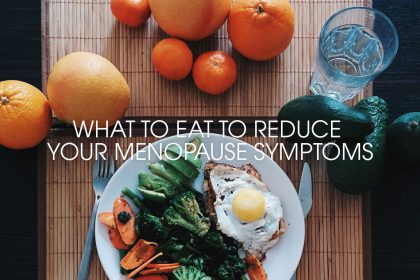10 nutrients every woman needs to be healthy and happy
Are you getting a balanced diet? Learn the 10 nutrients every woman needs to be fit and healthy – and how to get more of them.
Eating a balanced diet full of the right vitamins and nutrients is a key part of our overall health, wellness and performance.
Foods rich in proper vitamins are not only good for you, but they can also make you look, feel and perform better. As a woman, we also need to ensure our body has all the nutrients it needs throughout our menstrual cycle, and to support it through and after the menopause.
For women, particular vitamins and nutrients have specific nutritional benefits that can help us live and feel better. Here are 10 nutrients that are important for good physical and mental health – and how you can include them in your diet.
1) Calcium
Calcium is the most prevalent mineral in our body, and it plays a crucial role in making our bones strong and blood vessels healthy.
Women have a higher chance of developing osteoporosis as they age, so a diet rich in calcium is particularly important for us.
Calcium can also help reduce the risk of type 2 diabetes, and clinical trials have discovered that calcium rich foods can relieve period related depression, and make menstruation more tolerable. When our body has enough calcium we produce oestrogen more efficiently, and our moods are more regulated.
You can find calcium in many different foods – from dairy products like cheese, yogurt and milk, to leafy greens like kale, spinach and collard greens. Other calcium rich foods include almonds, beans and lentil and sardines.
2) Folate
Folate, or folic acid (vitamin B9), is an important vitamin for pregnant women because it helps prevent neural tube defects like spina bifida.
The spinal cord is one of the first parts of a baby to develop. So, as you may not know you’re pregnant in those first vital weeks, it’s wise to ensure you’re getting enough of this vitamin at all times.
As well as helping your baby develop healthily, folate is beneficial for your immune system, energy production, and helps to prevent anaemia. It may also protect your heart and reduce your risk of strokes.
You can find folate in a wide range of food, including bran flakes, spinach, tomatoes, broccoli, asparagus, wheat germ and black beans.
Our bodies can absorb folate more easily when taken in supplement form, and it’s very hard to get the 400mcg that is recommended via food alone. So it’s certainly a good idea to eat a folate rich diet, but you may also want to add supplements to ensure you get your recommended dose if you’re planning to get pregnant.
3) Magnesium
Magnesium plays a critical role in our health, and low levels can impact many of our body’s functions and increase our risk of common health problems and diseases including type 2 diabetes, osteoporosis, migraines, asthma, and colon cancer.
But, worryingly, it’s also a nutrient that many of us are deficient in.
As well as supporting good physical health, magnesium is also important for good mental health. It helps with energy production (it activates ATP, the energy molecule that fuels your body’s cells) and even helps you to get a good night’s sleep by maintaining healthy levels of GABA, a neurotransmitter that promotes sleep.
Magnesium plays a large role in the development of serotonin which contributes to happiness and overall good feelings, too. So it’s not surprising that magnesium deficiency can cause mental confusion, irritability, fatigue and predisposition to stress.
So how can you get enough of this essential nutrient in your diet? Magnesium rich foods include dark, leafy greens, nuts and seeds, squash and broccoli, dairy products, meat, unprocessed grains, chocolate and coffee.
People often check out these medications containing magnesium to supplement their intake, especially when diet alone isn’t meeting their needs. Incorporating both food sources and supplements can help maintain optimal magnesium levels for overall health.
4) Omega-3
Did you know that your brain is nearly 60% fat? But not just any old fat: these are essential fatty acids (EFA), and in particular omega-3. But, despite the importance of these fatty acids, our body doesn’t actually naturally produce them.
Which means, if we want to keep our brain functioning properly, to feel alert, have a good memory and combat depression, we need to eat them. It’s these factors that mean many experts classify omega-3 fatty acids as nootropics. But what are nootropics? Put simply they’re chemicals that enhance cognitive performance, making our minds work optimally.
So which foods contain omega-3? It’s found in fish (trout, herring salmon and other fish are excellent sources), nuts and seeds (flaxseeds, chia seeds and walnuts), plant oils and fortified foods. You can also take omega-3 in supplement form.
5) Iron
Iron helps your red blood cells carry oxygen to your tissues and organs. It also helps our immune systems fight disease, brain function and muscle strength.
Signs you’re low in iron include a general lack of energy and tiredness, poor concentration, bad memory and behaviour problems.
Consuming enough iron through food and supplements also prevents anaemia and fatigue. Anaemia is much more common in women than men, so it’s even more important to ensure your diet contains the correct levels.
You can find iron in shellfish, spinach, liver and other organs, red meat, pumpkin seeds, quinoa and pumpkin seeds.
6) Vitamin B6
Vitamin B6 helps the production of several neurotransmitters, making it essential for normal brain development and function.
In particular it helps your body make the hormones serotonin and norepinephrine, which influence mood, and melatonin, which helps regulate your body clock.
Signs you may be deficient in vitamin B6 include skin rashes, cracked and sore lips, a weakened immune system and overall tiredness.
Good dietary sources of vitamin B6 include pork, chicken, turkey, fish, wholegrain cereals, brown rice, eggs, vegetables and soya beans.
7) Vitamin B12
Vitamin B12 helps your body to create red blood cells and maintain a healthy nervous system. It’s crucial for nerve tissue health and brain function.
Low levels of vitamin B12 can lead to irreversible neurological symptoms. And worryingly, in the US between 1.5% and 15% of the population have been diagnosed as deficient.
Signs you’re not getting enough vitamin B12 include weakness, tiredness and lightheadedness, heart palpitations and shortness of breath, pale skin, a smooth tongue, constipation or diarrhoea, and nerve problems like tingling or numbness.
To help boost your levels of vitamin B12, try to eat more beef, liver, chicken, fish, shellfish, fortified breakfast cereal, eggs and dairy products. You may also choose to take supplements if you’re concerned you’re not getting enough.
8) Vitamin D
Vitamin D is known as the ‘sun vitamin’ as it’s produced by our body after sun exposure. It helps you to maintain healthy bones and teeth, and can protect against conditions cancer, multiple sclerosis and type 1 diabetes.
It’s estimated that you need to expose your bare skin to the sun for 5-10 minutes, two to three times a week to produce enough vitamin D. However, vitamin D breaks down quickly, meaning your stores are depleted fast.
This means that you can’t rely on ‘stocking up’ on enough vitamin D in the summer to see you through the dark winter months, when it’s harder to get your weekly allowance. As a result, it’s estimated that over a billion people worldwide are deficient.
So how can you top up your stores of vitamin D? As well as ensuring you get enough sun all year round, important sources of vitamin D include egg yolk, fatty fish, fortified dairy products and beef liver.
9) Zinc
Nearly every single cell in our bodies has zinc in it and it plays a crucial role in supporting a healthy immune system. It also protects and supports a healthy digestive system.
If your zinc levels are low, you may feel weak and notice symptoms like anaemia, hair loss, and depression. (Zinc is increasingly being seen as an important nutrient for combating depression.)
Good sources of zinc include seafood (oysters and crab in particular), beef, pork and chicken, fortified breakfast cereal, seeds and Swiss cheese. You can also increase the intake of zinc by adding a zinc supplement to your diet.
10) Chromium
Chromium is a mineral found in small amounts in the body, and it helps your body to metabolise food.
Chromium also supports your brains’ level of melatonin, serotonin, and norepinephrine, which help it regulate emotions and mood. It works directly with your body’s mood-regulating systems, and can help in the treatment of depression.
A lack of chromium can impact your body’s natural ability to regulate insulin, and can lead to diabetes-related conditions. Signs that you’re not getting enough chromium include an increase in anxiety, and decrease in energy.
Chromium rich foods include vegetables (broccoli, potatoes and green beans) whole grains, beef and poultry, fruit (bananas and apples) and dairy products.
Why women need to take particular care with their diet
While everyone needs to eat a healthy diet that’s rich in the right nutrients, it’s especially important if you’re a woman.
Low intakes of iron and calcium are common in women. Iron can be lost during your period, and calcium is particularly important to women for bone health. Additionally, your NAD level decreases as you age – which is why we recommend trying the best nmn resveratrol supplements to help get it back to normal.
As a result of losing iron during their period, women need to consume more through their diet (18 mg, compared to 8 mg for men). If you’re pregnant, you need 27 mg of iron daily.
Woman also have increased nutrient needs when pregnant (the key ones are calcium, folate and iron), and throughout menopause. Research shows that eating oily fish and legumes can delay your menopause. And getting the right nutrients when you’re going through menopause can help to dramatically alleviate the symptoms.
Are you getting enough nutrients?
Whatever your age or gender, in order to feel and be healthy and happy your diet needs to be rich in all the essential nutrients.
If you’re worried you’re not getting enough of a particular nutrient, then make a list of the foods that are rich in it, and start planning meals that include them.
And make sure you’re not depleting your stores through consuming large quantities of alcohol and caffeine, which can make these nutrients harder to absorb. Excessive salt also might affect the absorption and excretion of these crucial nutrients.
The good news is that many foods can help meet several of our nutritional needs, and putting together a food plan that covers all 10 nutrients won’t be too difficult – and we’re sure that you can still enjoy your favourite dishes and help your health at the same time.
This article was written by Greg Davis from Diet Fitness King. Check out specific diets for women on his website.
Photo by Kaizen Nguyễn










